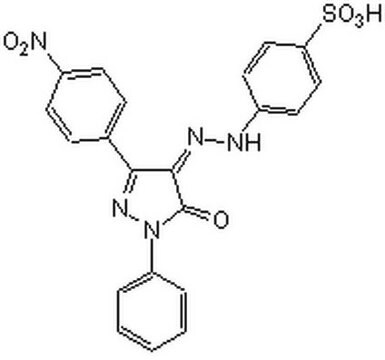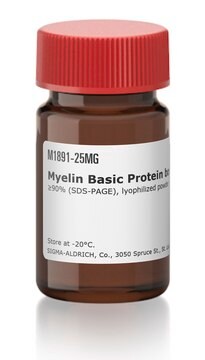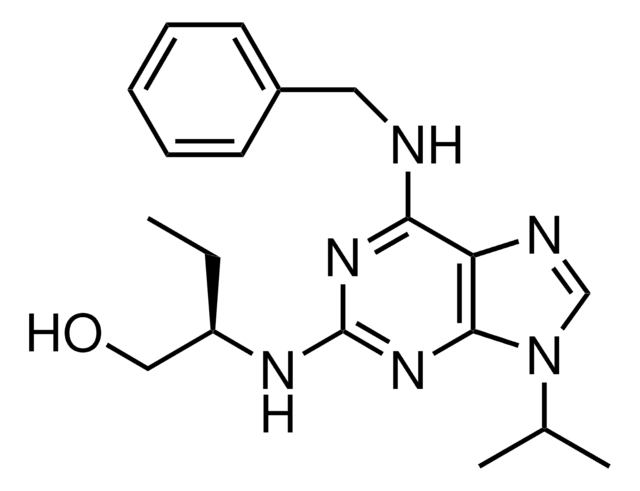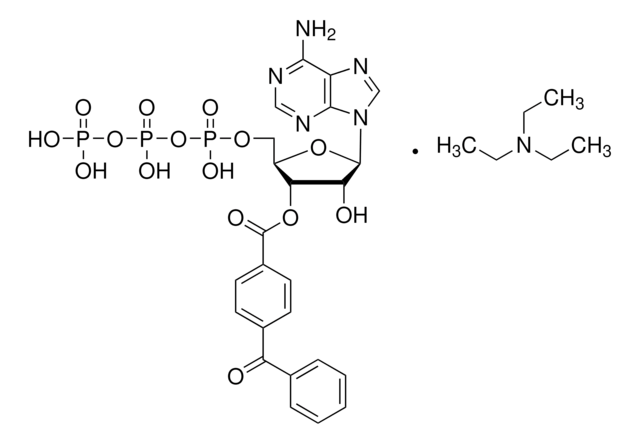P0039
PHPS1 sodium salt hydrate
≥98% (HPLC)
Synonym(s):
4-[2-[1,5-dihydro-3-(4-nitrophenyl)-5-oxo-1-phenyl-4H-pyrazol-4-ylidene]hydrazinyl]-benzenesulfonic acid sodium salt hydrate
About This Item
Recommended Products
Quality Level
Assay
≥98% (HPLC)
form
solid
storage condition
desiccated
color
red
solubility
DMSO: 10 mg/mL, clear (warmed)
storage temp.
2-8°C
SMILES string
O=C1/C(C(C2=CC=C([N+]([O-])=O)C=C2)=NN1C3=CC=CC=C3)=N/NC4=CC=C(S(=O)([O-])=O)C=C4.[Na+].O
InChI
1S/C21H15N5O6S.Na.H2O/c27-21-20(23-22-15-8-12-18(13-9-15)33(30,31)32)19(14-6-10-17(11-7-14)26(28)29)24-25(21)16-4-2-1-3-5-16;;/h1-13,22H,(H,30,31,32);;1H2/q;+1;/p-1/b23-20+;;
InChI key
KLXUVMQUEDKCKG-JBKNFAMTSA-M
Application
Biochem/physiol Actions
Features and Benefits
Storage Class Code
11 - Combustible Solids
WGK
WGK 2
Flash Point(F)
Not applicable
Flash Point(C)
Not applicable
Regulatory Listings
Regulatory Listings are mainly provided for chemical products. Only limited information can be provided here for non-chemical products. No entry means none of the components are listed. It is the user’s obligation to ensure the safe and legal use of the product.
JAN Code
P0039-25MG:
P0039-BULK:
P0039-IP:
P0039-VAR:
P0039-5MG:
Choose from one of the most recent versions:
Already Own This Product?
Find documentation for the products that you have recently purchased in the Document Library.
Articles
Protein tyrosine phosphatases' catalytic mechanism involves transient phosphorylation.
Our team of scientists has experience in all areas of research including Life Science, Material Science, Chemical Synthesis, Chromatography, Analytical and many others.
Contact Technical Service


![Adenosine 5′-[γ-thio]triphosphate tetralithium salt ≥75% (HPLC), powder](/deepweb/assets/sigmaaldrich/product/structures/319/398/e29221c2-3649-455b-bd33-583bb017ec7d/640/e29221c2-3649-455b-bd33-583bb017ec7d.png)




